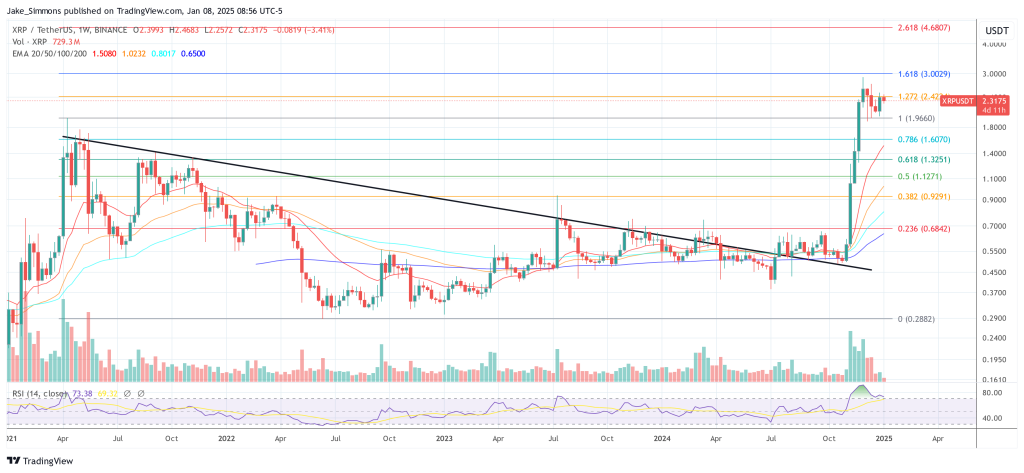Crypto adoption continues to grow at an exponential rate. This digital financial revolution has brought with it both benefits and challenges, with one of the most serious worries being the possible misuse of cryptocurrencies for money laundering and illegal activity.
Concerns about money laundering and the rise of cryptocurrency
Cryptocurrencies provide privacy and pseudonymity that traditional financial systems do not. While this feature has been lauded for its privacy benefits, it has also prompted worries regarding potential abuse. Criminals and money launderers have taken use of this anonymity to conduct a variety of unlawful operations, including money laundering, tax evasion, and terrorism financing.
Regulatory Reaction to Cryptocurrency Money Laundering
Regulators around the world have recognized the need to address the possible misuse of cryptocurrencies. Their reactions have been varied, but some similar themes have emerged:
- Anti-Money Laundering (AML) Regulations: Many nations have enacted or strengthened anti-money laundering (AML) legislation to include cryptocurrencies. These regulations require bitcoin exchanges and organizations to perform consumer due diligence, report suspicious transactions, and follow Know Your consumer (KYC) processes.
- Registration and Licensing: Cryptocurrency firms, like as exchanges and wallet providers, must register with authorities and receive licenses in a number of jurisdictions. These licenses include commitments to meet AML and KYC standards.
- The Financial Action Task Force (FATF), an international standard-setting organization, introduced the "Travel Rule." This rule requires exchanges to share transaction information for individual bitcoin transactions, including sender and receiver details, aligning them with traditional financial institutions.
- Increased supervision: Regulatory bodies are becoming more rigorous in their supervision of cryptocurrency activity. Blockchain analysis companies play a critical role in supporting law enforcement organizations by tracking and tracing cryptocurrency transactions in order to discover any illegal activities.
- Bans and Restrictions: Some governments have taken a more severe stance, overtly prohibiting or regulating the usage of cryptocurrencies. Others have banned privacy-focused cryptocurrencies such as Monero due to their perceived high risk of criminal use.
Limitations and Challenges
While regulators have made tremendous progress in addressing concerns about cryptocurrency-related money laundering, certain obstacles and restrictions remain:
- Because of their enhanced privacy characteristics, privacy-focused cryptocurrencies such as Monero and Zcash remain difficult for authorities to track. Criminals adapt swiftly to new privacy technology.
- Cross-Border Nature: Cryptocurrencies function without hindrance across boundaries. AML measures in one country may not dissuade criminals working from weaker jurisdictions.
- Regulatory Fragmentation: Due to the global nature of cryptocurrencies, regulatory fragmentation has resulted, with different governments taking different approaches. This lack of consistency undermines the effectiveness of regulations.
- Criminals constantly modify their strategies in order to outperform police enforcement. Techniques such as coin mixing and decentralized trades make discovery difficult.
- Education Gap: Many cryptocurrency users and businesses are unaware of their AML and KYC responsibilities. Educating the sector is still a challenge.
The Next Steps
To effectively address these difficulties, governments, regulators, businesses, and the bitcoin community must work together:
- Global Coordination: To prevent cross-border money laundering involving cryptocurrencies, international cooperation and coordination are required. Standardized policies and practices can improve the effectiveness of anti-money laundering initiatives.
- Technological Innovation: It is critical to develop advanced tools and technology for blockchain analysis. To remain ahead of emerging criminal methods, law enforcement and regulatory authorities should engage in research and development.
- sector Self-Regulation: The bitcoin sector should self-regulate proactively. Exchanges and enterprises should voluntarily follow AML and KYC best practices.
- Public Awareness: Education and awareness initiatives can help bitcoin users and businesses understand their duties and the hazards of cryptocurrency-based money laundering.
- Regulatory Clarity: Regulators should give bitcoin businesses with clear rules and regulations to ensure they understand their obligations and can comply efficiently.
Tightening Regulations for Crypto: Addressing Concerns about Terrorist Financing
In the cryptocurrency realm, the potential of terrorist financing and support for militant groups is gaining scrutiny. Recent events, including the Hamas attack in Israel, are prompting calls for more robust crypto regulations.
Cryptocurrencies are appealing for illicit finance due to easy wallet setup without stringent identity checks. These wallets are pseudonymous, allowing anonymous transactions. Cryptos' borderless, instant payment capabilities further facilitate illicit activities.
Cryptocurrency regulations remain relatively underdeveloped compared to traditional finance, a global gap recognized by the FATF. The public nature of blockchains, like Bitcoin and Ethereum, allows tracking but often necessitates off-chain information for identifying users.
Cryptocurrency-related crimes extend beyond terrorism to scams, ransomware attacks, and theft. Chainalysis recently reported new all-time highs in what concerns crypto crime trends. Cyberattacks and crypto theft have become significant funding sources for entities such as North Korea.
To address these concerns, robust regulations and comprehensive frameworks emphasizing transparency and adherence to AML and KYC procedures are essential. While the majority of cryptocurrency users are legitimate, stringent oversight is necessary to minimize potential risks associated with illicit actors in the crypto sphere.
Conclusion
Cryptocurrencies have the potential to transform finance, but they also present concerns, notably in the field of money laundering. Although regulators have made substantial attempts to address these concerns, the volatile nature of cryptocurrencies necessitates continual adaptation and coordination.
As cryptocurrencies evolve, regulators must strike a balance between encouraging innovation and protecting against criminal activity. To preserve the long-term survival and legitimacy of the digital asset ecosystem, the bitcoin community must embrace responsible practices.
The question of whether regulators are doing enough to discourage the use of cryptocurrency as a money-laundering weapon remains unanswered. It is a dilemma that will endure as the world of cryptocurrencies and blockchain technology evolves, necessitating worldwide awareness and cooperation.
This article was written by Pedro Ferreira at www.financemagnates.com.
You can get bonuses upto $100 FREE BONUS when you:
💰 Install these recommended apps:
💲 SocialGood - 100% Crypto Back on Everyday Shopping
💲 xPortal - The DeFi For The Next Billion
💲 CryptoTab Browser - Lightweight, fast, and ready to mine!
💰 Register on these recommended exchanges:
🟡 Binance🟡 Bitfinex🟡 Bitmart🟡 Bittrex🟡 Bitget
🟡 CoinEx🟡 Crypto.com🟡 Gate.io🟡 Huobi🟡 Kucoin.



















Comments